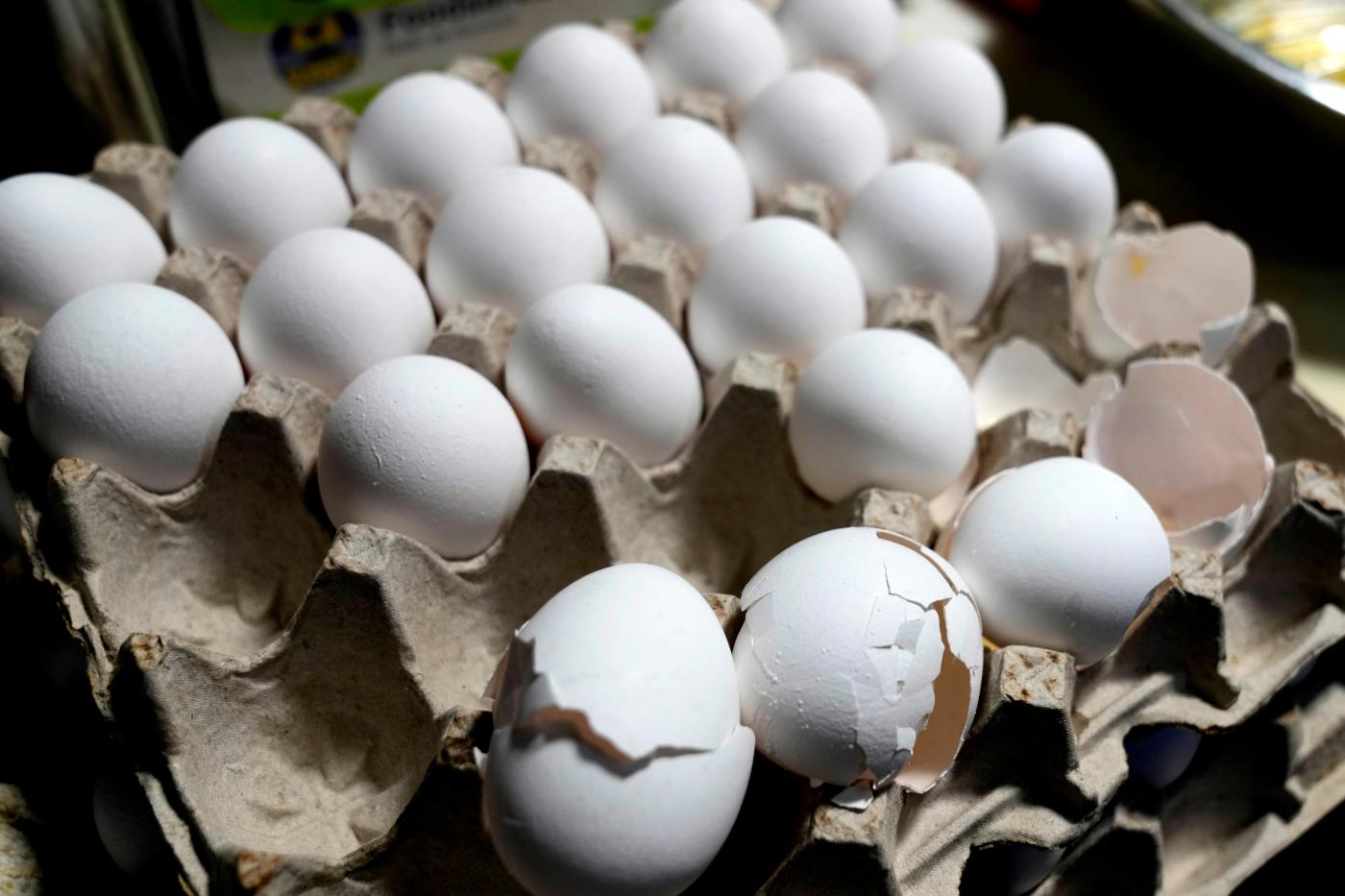By Ilena Peng | Bloomberg
Egg prices hit another fresh record for consumers in March as retailers, fearing future supply shocks, keep prices high.
Consumer prices for eggs rose 5.6% in March from February to $6.227 a dozen, and doubled from the year-earlier level, according to the US Bureau of Labor Statistics. The increase comes even as prices for wholesalers that supply grocery stores have dropped steeply.
Related Articles
Backyard chickens might not crack high egg prices, but these owners say they’re worth it
Hearing on State Farm’s 22% emergency rate hike request starts this week
Rooftop solar is not the culprit behind high California electric bills, advocates say
Home cooks are shopping a little differently for groceries in 2025
Eggs too expensive? Here’s how to bake without them
That’s unwelcome news for President Donald Trump’s effort to bring down egg prices. He has become fixated on eggs as a symbol for shoppers struggling with high grocery bills, and has repeatedly applauded the recent drop in wholesale prices.
Industry experts had expected prices for eggs on grocery shelves to fall, as lower demand and abating bird flu outbreaks cooled prices. Wholesale egg prices for large white shell eggs pulled back in March to $3 a dozen, down from a record above $8 a dozen in February. But consumers aren’t seeing any of that decline yet.
Prices “can go up quickly, but if supply assurance is limited, those retail outlets may be reluctant to bring prices back down, for fear that they get caught behind the market again,” according to Brian Earnest, the lead animal protein economist at CoBank. “It can be really cumbersome to keep changing shelf tags.”
Shoppers are likely to see prices between $2 to $6 a dozen for the next few months as supplies recover, though retail prices “can be really difficult to predict” especially with volatile supplies, Earnest said.
The risk of further bird flu outbreaks still remains, and prices may also be supported by Easter on April 20, a period that typically sees elevated demand as consumers buy eggs to dye, hunt and eat.
More stories like this are available on bloomberg.com
©2025 Bloomberg L.P.





